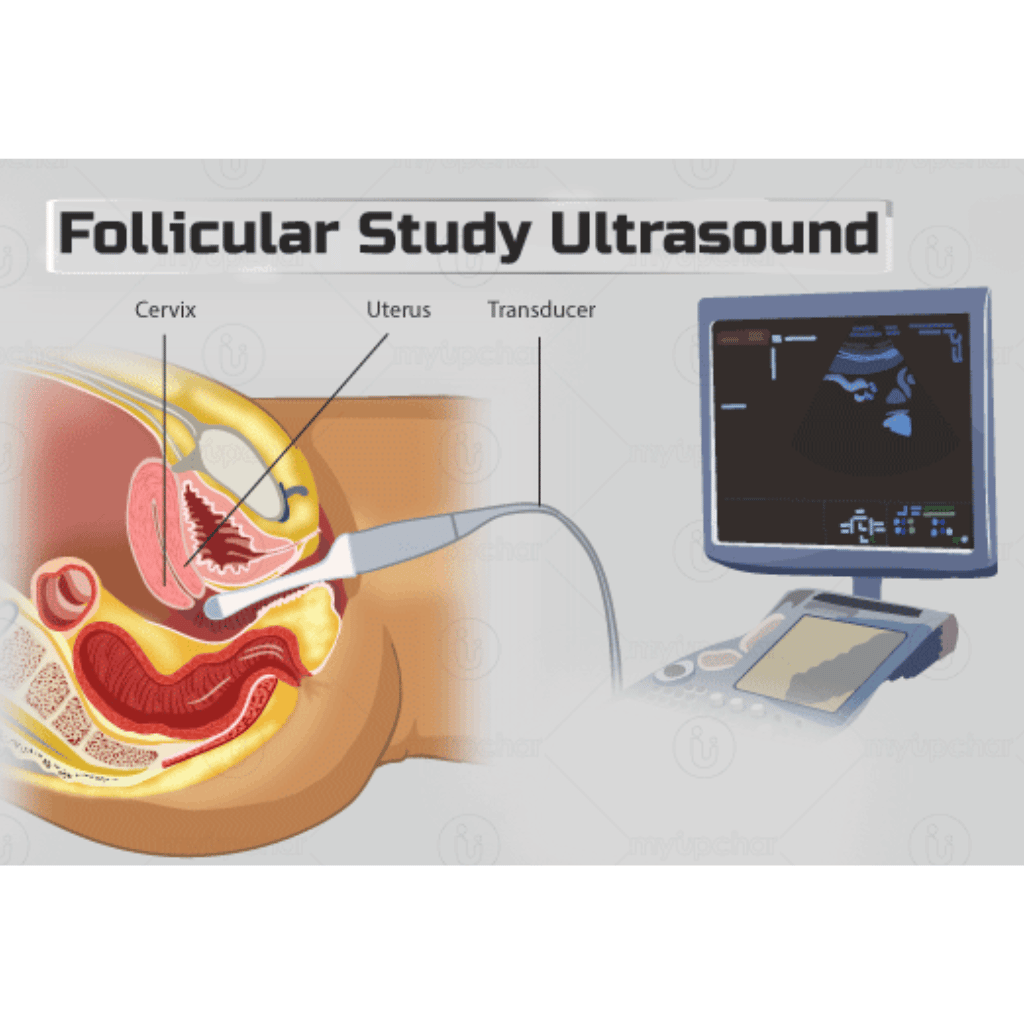What is a Follicular Study?
A Follicular Study is a series of ultrasound scans performed to monitor the growth and development of ovarian follicles, which contain eggs. It helps determine the best time for conception by tracking ovulation and assessing the thickness of the endometrial lining (uterine lining).
This test is commonly recommended for:
✔ Women experiencing irregular menstrual cycles
✔ Couples trying to conceive naturally or through assisted reproductive techniques (IVF, IUI, etc.)
✔ Monitoring fertility treatments and hormone therapy

Why is a Follicular Study Important?
- Helps identify the exact ovulation window, increasing the chances of conception.
- Determines if the follicles are maturing properly and when they are likely to release an egg.
- Assesses endometrial thickness, which is crucial for successful implantation of the fertilized egg.
- Diagnoses conditions like PCOS (Polycystic Ovary Syndrome) or anovulation (lack of ovulation).
- Helps optimize fertility treatments, ensuring medications and interventions are correctly timed.
How is the Follicular Study Done?
The follicular study is conducted through ultrasound scans (USG), and the process involves:
✅ Transabdominal Ultrasound (Over the abdomen) – Used early in the cycle when the follicles are small.
✅ Transvaginal Ultrasound (TVS) (Internal scan) – Provides a clearer view of follicular growth as the cycle progresses.
Step-by-Step Process:
- The first scan is usually done on the 2nd or 3rd day of the menstrual cycle to assess the baseline condition of the ovaries.
- Multiple follow-up scans are performed from day 9 to 16 (or more, depending on the cycle) to track follicular growth.
- The follicle is considered mature and ready to release an egg when it reaches 18-24 mm in size.
- The doctor may suggest timed intercourse or an IUI procedure when ovulation is imminent.
- A final scan may be performed to confirm whether ovulation has occurred (follicle rupture).
FREQUENTLY ASKED QUESTIONS
Q.1. How many days does a follicular study take?
A follicular study usually takes between 5 to 7 days across multiple ultrasound sessions. The exact duration depends on how quickly the follicle matures and when ovulation occurs.
Q.2. Does the follicular study test confirm ovulation?
Yes, the scan helps detect ovulation by monitoring follicular growth and rupture. A post-ovulation scan confirms if the follicle has released an egg.
Q.3. Is the follicular study painful?
No, it is a non-invasive and painless procedure. Transabdominal ultrasound requires applying gel on the abdomen, while transvaginal ultrasound may cause mild discomfort but is not painful.
Q.4. What happens if the follicle does not grow or rupture?
If the follicle fails to develop or rupture, it may indicate hormonal imbalances, PCOS, or other fertility issues. Your doctor may recommend hormonal therapy or ovulation-inducing medications to assist the process.
Q.5. Can a follicular study increase the chances of pregnancy?
Yes! By accurately predicting ovulation, it helps couples time intercourse or fertility treatments for the best chances of conception. It is widely used in fertility planning to maximize success rates.
